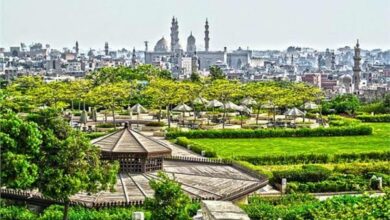
Famous worldwide for its high nutritional values and medicinal properties, the Moringa tree is mostly unknown in Egypt. In an attempt to make use of this miracle plant on a wide scale, researchers are considering the possibility of mixing extracts of the tree with subsidized bread to improve Egyptian public health.
A while back, Ismail Abdel Galil, former head of the Desert Research Center and the founder of the gene bank in Sinai, asked a group of biologists to look for the presence of Moringa trees on Egyptian soil. The group found just one tree, in Safaga, and so Abdel Galil received seeds from a UK seed bank for various species of Moringa trees.
This tree could benefit the country on various levels.
“The Moringa tree can contribute significantly to combating the problems of malnutrition in a developing country like Egypt, where most children suffer from anemia, and vitamin A and iron deficiencies that affect their immunity, memory and vision,” he says.
A single teaspoon of Moringa powder contains as much vitamin C as four glasses of orange juice, as much calcium as four glasses of milk, the protein of an egg and the potassium of two bananas — plus 10 times the concentration of vitamin A in carrots and 10 times the iron in spinach, he says.
“Because the average Egyptian parents can’t afford all these kinds of foods to keeptheir children healthy, the Moringa can offer a solution,” says Abdel Galil.
In addition to providing a highly nutritional food source, Abdel Galil explains, the Moringa tree can be used to purify water and replace chlorine, which is hazardous, and used extensively in the sanitation and purification systems.
The tree can also produce oil. About half of the seed is pure oil, which could be used to alleviate the country’s reliance on imports, which amounts to 90 percent.
“It could help meet the needs of the Egyptian population and achieve a degree of self-sufficiency,” he says.
Used as animal feed, the Moringa tree has been proven to enhance cows’ milk and meat production, and its leaves can be used as a natural fertilizer and pesticide. The fast-growing shrub, when closely planted in rows, turns into a sturdy hedge.
“One of the main advantages of Moringa trees is their ability to resist high temperatures, drought and salinity levels, which makes it suitable for marginal areas like deserts, where other plants can’t survive,” Abdel Galil asserts.
Regarding medical benefits, Moringa can treat nyctalopia, or night blindness, and high blood pressure. But Abdel Galil warns that recent television claims that Moringa can help with weight loss aren’t backed up scientifically.
However, he asserts that adding Moringa to children’s biscuits could guarantee that its nutritional value “will reach every house across Egypt.” If the Supply and Internal Trade Ministry adopts the idea, it would benefit the health of poor citizens, whose primary meals depend mainly on bread.
“I always believe the main role of scientific research is to help solve the problems the country suffers from, and improve its people’s lives,” he says.
This piece was originally published in Egypt Independent's weekly print edition.



